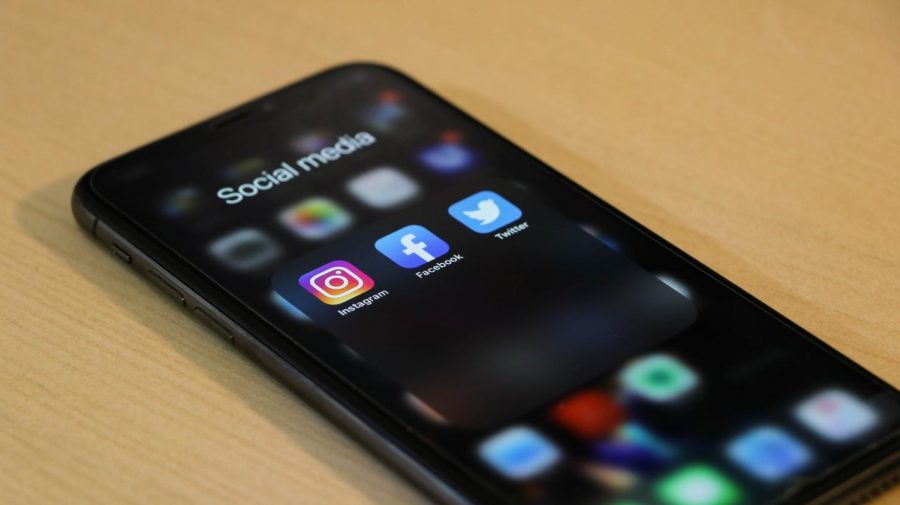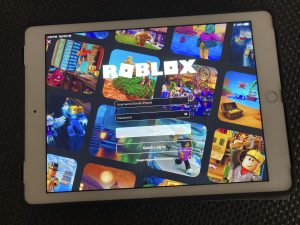Cancel Culture is Toxic and Needs to End
September 25, 2020
Cancel culture is a trend that has gained traction for years online and on social media. Celebrities and influencers are ‘canceled’ if they do something considered offensive, and can be boycotted online or in real life. Careers and reputations are being ruined, and it stops people from learning from their mistakes in a positive way. The hateful backlash celebrities receive is also damaging to their mental health. Cancel culture is a toxic trend and needs to end. Stop bashing others on social media.
Cancel culture is nothing new, used against celebrities and social media personalities for years, even before the era of social media. Girl band ‘The Chicks,’ formerly known as ‘The Dixie Chicks,’ was ‘canceled’ in 2003 after lead singer Natalie Maines expressed her personal opinion on the current president of the time, George Bush. She expressed her disagreement with the 2003 invasion of Iraq, earning backlash from The Chicks’ largely conservative fanbase. The band was ‘canceled,’ resulting in fans boycotting their music and radios refusing to play their songs. According to Refinery 29, “Radio airplay for the Chicks fell by 20%… their single “Travelin’ Soldier” almost instantly dropped from #1 to #63 on country sales charts.”
A ‘false dichotomy’ is the name of a tactic used in cancel culture that convinces people that there are only two sides to the issue when, in reality, there are often more. People assume they only have two options when a celebrity is canceled: support and agree with the celebrity’s mistake, or cancel them. This false dichotomy causes celebrities to be canceled for insignificant reasons. Canceling a celebrity purely because of a difference of opinion is harmful, and can be detrimental to their careers and reputations.
People also search for reasons to ‘cancel’ others for personal gain, or even social status. According to magazine Psychology Today,“For social strivers, cancel culture has created new opportunities to move up by taking others down,” This creates a negative environment where people are searching for ways to bring others down. It doesn’t support growth and inhibits people from learning from their mistakes in a positive and productive way.
“It’s almost as if [people] are looking for the flaws in others so that they can have an excuse to cancel them,” sophomore Maya Martono said.
The biggest problem with cancel culture is that it makes people fearful to express their own opinions. This fear can also affect media and news, and people will shy away from talking about controversial subjects. People shouldn’t feel a constant threat over their head because they don’t conform to the mob’s opinions. Different perspectives are important, and while people may disagree, it’s good to have challenging conversations. These challenging conversations can also help people be more open minded and understand the other person’s perspective.
All humans make mistakes, including public figures. The main goal of cancel culture is to get people to own up to their mistakes, apologize for them, and resolve them. Sometimes apologies are pulled apart and criticized, resulting in more group shaming. Group shaming and boycotting in large quantities often damage and ruin celebrities’ careers and reputation. People need to be more forgiving and stop searching for ways to put others down.
But some celebrities are canceled for legitimate reasons, such as the influencer and YouTuber Logan Paul. Paul filmed a YouTube video in Japan’s ‘suicide forest,’ Aokigahara, in late 2017. The forest is a place where many people take their own lives, and Paul came across a man’s body and began to joke about suicide and death. People were rightfully disgusted with the video and subsequently ‘canceled’ Paul. An attempt to apologize resulted in more hate and online criticism. Paul posted an apology on twitter written in the ‘notes’ app along with a short minute and a half video on youtube. He apologized to the internet, people who saw the video, and the victim and the victim’s family, among others, and expressed his regret in posting the video, insisting that he would be more mindful about insensitive content.
While Paul’s actions were not justified, if celebrities and public figures who are ‘canceled’ earnestly try to change their actions, people should be able to forgive them. “It [cancel culture] is not leaving room for the people being canceled to apologize, and no room for the people canceling to be empathetic or understanding. Both sides end up angrier and it doesn’t lead to anything being solved,” junior Zoe Frank said.
People may argue that cancel culture is effective because it makes celebrities admit their mistakes and fix them. Cancel culture does make celebrities admit their mistakes, but in a toxic negative way. The boycotting and criticism can easily get out of hand, like when Lea Michele was ‘canceled’ this summer.
May 29, Michele endorsed the Black Lives Matter movement on Twitter shortly after George Floyd’s death. Samantha Ware, Michele’s former co-star, replied to Michele’s tweet. “Remember when you made my first television gig a living hell? Cause I’ll never forget…Amongst other traumatic microaggressions that made me question a career in hollywood,” Ware said. This caused many of Michele’s other co-stars to come forward with their negative experiences working with her. July 8, Michele’s co-star Naya Rivera was reported missing, and Michele was harassed on Twitter, receiving comments saying it should have been Michele who died instead of Rivera. She was bullied and harrassed so much, it drove her to subsequently delete her Twitter account. Cancel culture justifies bullying and harassment, and is very harmful to celebrities and public figures.
“I think that a mentality of actively trying to bring other people down like that isn’t healthy,” Martono said. Instead of bashing and shaming, people should be forgiving and help educate celebrities or public figures who make mistakes and offer genuine apologies. Ending cancel culture is the only effective way to allow people to change and grow.







